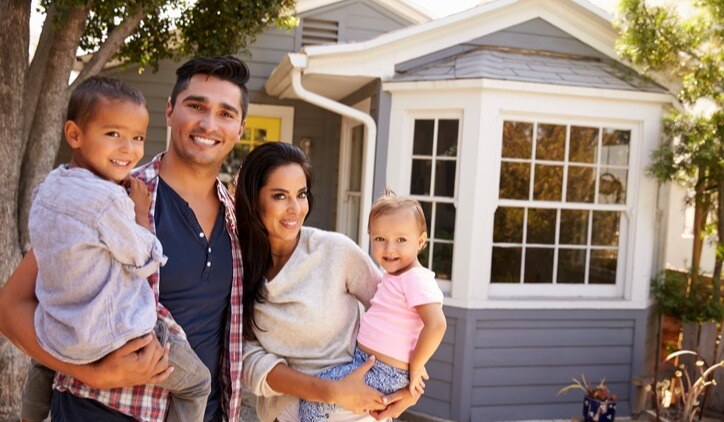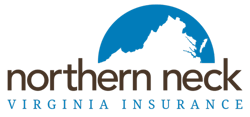
When shopping for homeowners insurance, the first thing to remember is that homes in Virginia are more likely to get damaged from weather than other states. As an Atlantic coastal state, severe weather and natural disasters such as hurricanes, floods, and storm surges are common.
After weather risks are factored in, there are a bunch of other major influences on home insurance rates. What you pay depends on specifics in your policy, factors about your house, and things about you. Everything from what deductibles you choose and where your home is located to what breed of dog you have can play a role in determining your rate. There are also things you can do to save money on your home insurance.
How your policy affects your insurance rate
When you shop for homeowners insurance, it's best to consult a licensed professional. Independent insurance agents can shop and write from a wide selection of carriers for the best fit for you. They'll also help you navigate the various decisions you'll make around out-of-pocket costs associated with your policy.
Here are details in your policy that impact your rate:
Deductibles:
Deductibles are the amount you pay before your insurance company pays in the event of a claim. Choosing the right deductible is a significant decision. The higher your deductible, the more you can save on your rate, but be prepared to suddenly fork out a potentially large sum of money. Deductibles can range from $500 to $2000. Think of it this way; the lower your deductible, the more coverage and security you have. There may also be other weather-related deductibles for things like wind, hail, and hurricanes if you live in a disaster-prone area.
Liability limits
Liability limits on your home insurance policy provide financial protection for hefty medical expenses and potential lawsuits when you cause injury to another person. While most experts recommend limits of at least $300,000, if you have combined assets exceeding $500,000, you may want to consider additional coverage in an umbrella policy.
How your home affects your insurance rate
Your home and the various details related to its construction and condition significantly impact your insurance rate. This information is gathered to be sure you'll have adequate coverage. Underinsuring a home is the most common mistake made when buying homeowners insurance.
Often market value is used to determine the amount of insurance you need. However, this is 80%-90% of the actual value of your home and property. Replacement cost home insurance will pay the cost to rebuild your home at the time of the loss and save you the heartache and shock of making up the difference. A professional appraiser can provide an accurate replacement figure.
Here are other factors about your home that can affect your rate:
-
Location
-
Age and construction materials
-
Size
-
Remodeling
-
Swimming pool and hot tub
-
Condition of roof
-
Proximity to coastline or water
-
Proximity to fire department/ hydrant
-
Wood-burning stove
-
Security features
-
Smoke Detectors/sprinkler system
-
Crime rate
-
Other structures- shed/garage
How things about you affect your home insurance rate
Your lifestyle and the choices you make can affect your home insurance rates. Insurance companies use personal factors to help them decide whom to insure and what to charge. Just as banks use credit scores for lending purposes to gauge on-time payments, studies show certain individual details help insurers assess the likelihood of future claims and their cost.
Here are commonly used personal factors that can affect your home insurance eligibility and rate:
-
Credit history
-
Marital status
-
Dog breed and aggressive behavior
-
Type and number of claims
-
Age
-
Insurance score
-
The value of your belongings
-
Home-based business
- Tenure with an insurance carrier
Ways to Save on Home Insurance
There are so many ways to save money on your homeowners insurance premium that we wrote a blog post about it. We said this earlier, and it's worth saying again: use an independent agent to shop. Working with an independent agent means that they will shop around on your behalf for any company that offers the best rates and coverages. Single-company "captive" agents sell only one brand of insurance.
Bundling is in a tie for first place with using independent agents for money-saving tips. Get all your personal lines insurance from the same company and you can earn nice discounts. Like many insurers, we explain all the benefits that come from bundling on our savings page, but make a note: we offer a 35% discount for home, car, and umbrella insurance bundles.
Here are a few other suggestions to reduce your home insurance costs:
- Maintain your home. Trim trees, have your roof and chimney inspected annually, keep your downspouts and gutters clean and functional, keep your home clean and organized, control insects and rodents, and prevent water damage.
- Make your home safer. Features like smoke detectors, storm shutters, and deadbolt locks can result in discounts. Add water sensors and smart home technology.
- Upgrade outdated appliances: heating, plumbing, and electrical systems.
- Improve your credit. Pay off any high balances and then pay your credit cards off every month.
- Get rid of risky factors. You can't dig up the backyard pool but consider ditching the trampoline. In 2018, over 300,000 people were hospitalized from serious trampoline injuries, and insurance companies plan for that.
- Prevent dog bites. Consider breeds less prone to aggression when taking on a family dog. Take your dog to a trainer and use a leash and muzzle, if necessary, to prevent biting incidents. Also, monitor your dog carefully around young children. According to the Humane Society, 51% of dog bite victims are kids between ages 5 and 9.
- Review your coverage annually. You don't want to be underinsured, but you can drop coverages you no longer need. Maybe you decided to get rid of the trampoline or you sold something of high value in the past year.
- Track your claim activity. You can get a C.L.U.E. (Comprehensive Loss Underwriting Exchange) Personal Properly report for free once a year. The report shows seven years of claims by date, type of loss, and amount paid by the insurer. The amount of the payout can be less important than the type of claim and frequency. Request your report online or by calling (866) 312-8076.
Now you're more informed about what information home insurance companies use to determine rates. This knowledge can help you make intentional decisions about lowering your insurance costs and comparing rates when shopping for home insurance.



